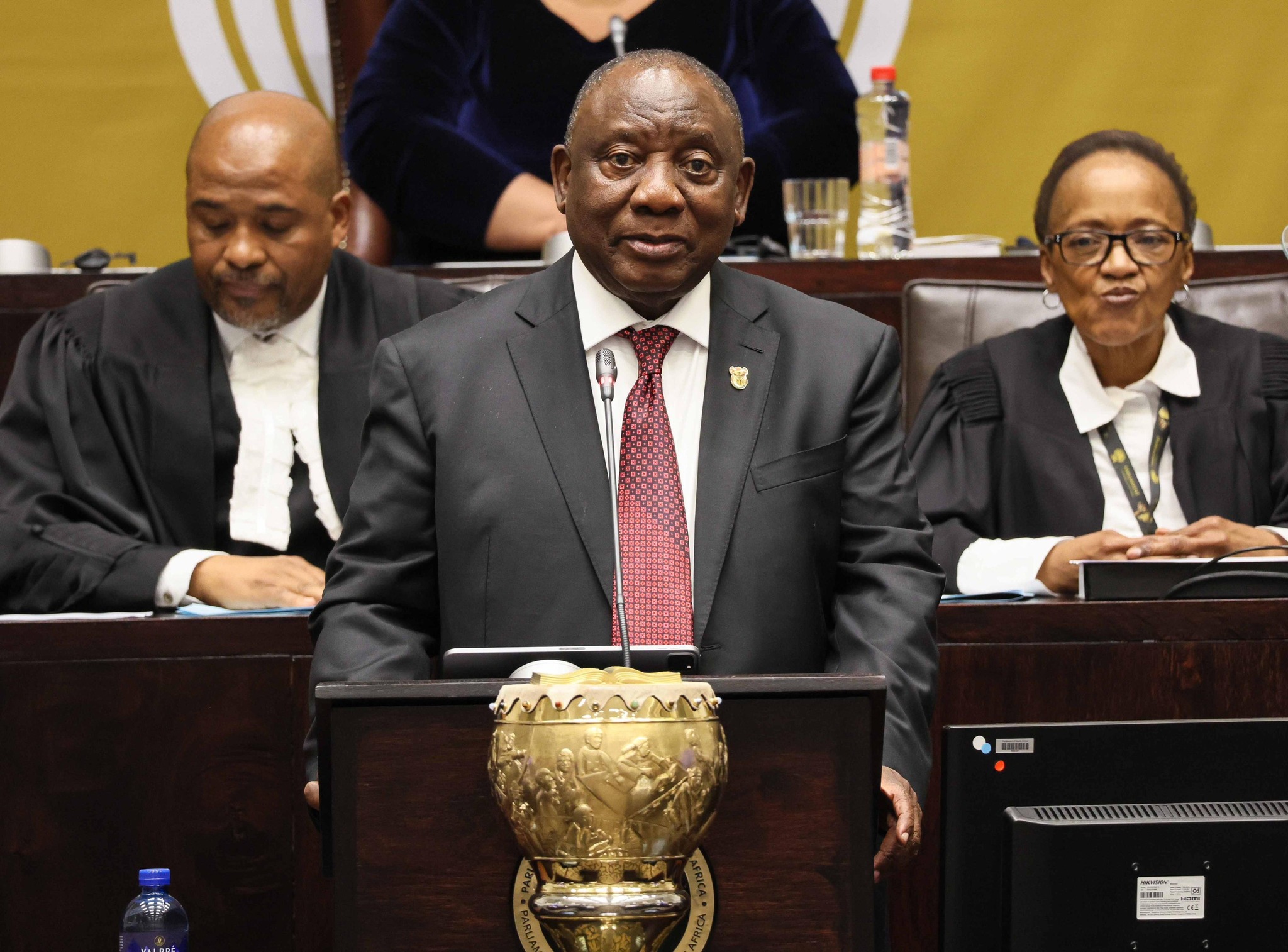Ramaphosa Defends Democratic Progress and GNU in Budget Vote Reply
Central to Ramaphosa’s address was praise for South Africa’s Constitution, which he described as one of the most progressive and empowering legal frameworks in the world.

- Country:
- South Africa
In a forceful and impassioned reply to the Presidency Budget Vote debate, President Cyril Ramaphosa reaffirmed South Africa’s democratic gains, the central role of its world-acclaimed Constitution, and the importance of collective governance through the newly established Government of National Unity (GNU).
Speaking in Parliament on Thursday, the President acknowledged the nation's challenges — from inequality to service delivery shortfalls — but emphasized that, at just 31 years old, South Africa’s democracy has achieved remarkable milestones in improving the lives of its citizens.
“Our democracy, only 31 years old, has made great progress in improving the quality of life of its citizens. Not to the level we want, but it has improved — and that should not be overlooked,” Ramaphosa said.
Celebrating Constitutional Democracy and Citizen Empowerment
Central to Ramaphosa’s address was praise for South Africa’s Constitution, which he described as one of the most progressive and empowering legal frameworks in the world.
“We are counted among the few [countries] with a Constitution that allows our people to take the government to court — and at times win. That is something to be proud of,” he told MPs.
The President noted that the right to legal recourse, freedom of expression, and public participation enshrined in the Constitution are all hallmarks of a maturing democracy, especially when compared to nations whose democracies span centuries.
GNU: A Symbol of Cooperation Over Conflict
One of the central themes of Ramaphosa’s reply was the strength and resilience of the Government of National Unity, which now comprises 10 political parties. While acknowledging internal tensions, he stressed that partners within the GNU have chosen cooperation over partisanship, placing national interest above narrow politics.
“Despite differences, the GNU partners have chosen to work together for the common good of all South Africans,” he said, describing the coalition as a true Government of National Unity.
Ramaphosa pointed out that the GNU is not merely a political arrangement but a reflection of inclusive democracy in action, embodying the spirit of dialogue and compromise.
Highlighting Tangible Gains Amid Harsh Realities
Responding to criticism from opposition MPs such as Hon. John Hlophe, who laid out what the President called a “laundry list” of failures, Ramaphosa acknowledged the many ongoing challenges — but countered with examples of progress, including:
-
Widespread electrification of millions of homes since 1994
-
Access to clean water for previously unserved communities
-
Expansion of public housing for low-income and vulnerable populations
-
Growth in social grant coverage for children, the elderly, and people with disabilities
“We must be honest about our challenges but not blind to our progress. It is essential that we look at both sides of the national story,” he added.
Addressing Historical Inequalities and Economic Justice
In response to Freedom Front Plus references to the Carnegie Commission Report on “poor whites,” Ramaphosa pushed back against the idea that such frameworks are useful for present-day policymaking.
He noted that during apartheid, the State invested disproportionately in white citizens, including:
-
Larger allocations to white schools and universities
-
Better-funded healthcare systems for white communities
-
Significant land redistribution and agricultural subsidies for white farmers
“When land was taken from black people, the State gave it to whites. Now, the State must help black people to get their land back,” he said.
This statement echoed the broader push for land reform and redress — a central theme in the national development agenda.
Presidency’s Role: Coordination, Not Prosecution
Clarifying the role of the Presidency, Ramaphosa reminded Parliament that the Office of the President does not prosecute individuals, nor does it dictate sentencing. Instead, its role is one of strategic oversight, ensuring government-wide coordination and execution of Cabinet decisions.
“The Presidency, and indeed the President, does not try accused persons or put them in orange overalls,” he said, likely referencing ongoing public debates about accountability for corruption.
He emphasized that the Presidency works to ensure that government departments function cohesively, and that priority programmes and reforms are implemented efficiently.
Private Sector Vital to Economic Revival
President Ramaphosa also highlighted the critical role of the private sector, which accounts for 73% of total employment in South Africa. He argued that the government must focus on enabling conditions for private investment, entrepreneurship, and inclusive growth.
This includes:
-
Cutting red tape
-
Accelerating energy reforms
-
Supporting small and medium enterprises (SMEs)
-
Advancing digital transformation and industrial policy
Open Dialogue: A Pillar of Democracy
The debate, while at times contentious, illustrated South Africa’s commitment to open political dialogue and democratic accountability. The President welcomed differing views, noting that vibrant debate is a necessary feature of democratic life, particularly as the country seeks to overcome its complex history and forge a more equitable future.
“Let us not weaponize our past, but learn from it — and act with urgency and unity to build a more just and prosperous South Africa.”
Looking Ahead: A Democratic Work in Progress
As South Africa confronts economic headwinds, energy challenges, and social inequality, Ramaphosa concluded by calling for collective action, principled leadership, and faith in democratic processes.
His address served not only as a defence of the GNU and his administration’s achievements but also as a rallying call to deepen democratic governance, advance social justice, and remain steadfast in building a capable, ethical, and people-centred state.










